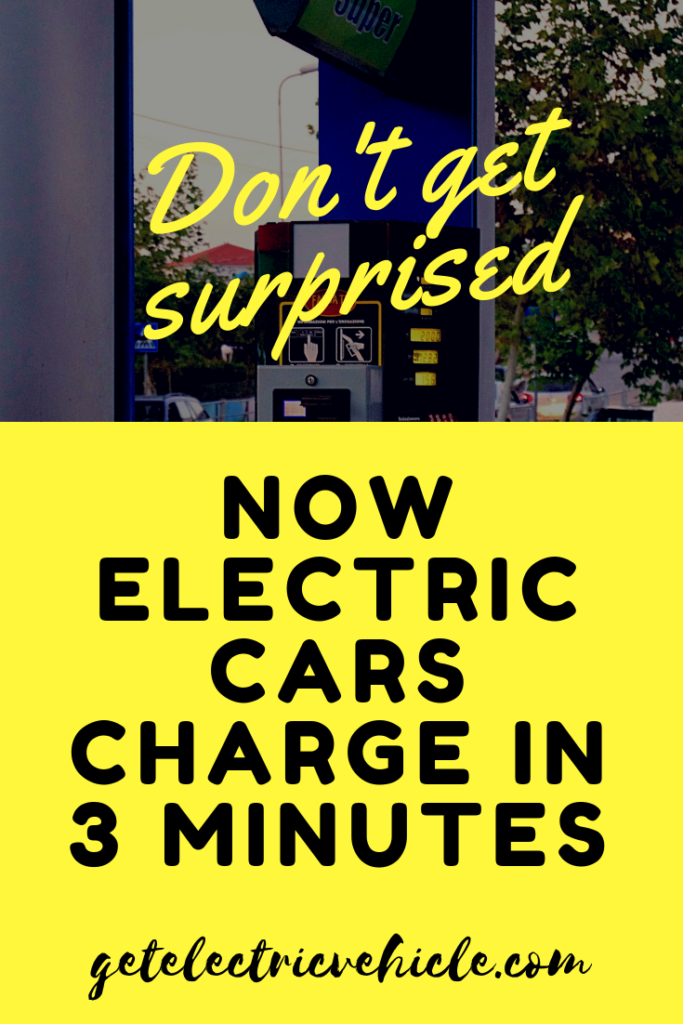
Charging time is one of the major drawbacks of electric cars. Electric car charging time depends on the type of chargers and battery. In general, an electric car takes a few hours to fully charge the battery.
Level 1, level 2 charging stations take more time to charge a battery. It ranges from 5 to 7 hours. You can read more: How long does it take to charge an electric car battery?
Fast charging stations installed widely in the US, fully charge an electric car in less than 70 minutes. It charges 50% in 20 minutes and 80% in 40 minutes. 100% charge gives a maximum range of 265 miles.
Still, the time to charge EV is more than the time required to fill the gas tank of a conventional vehicle.
Here is the good news.
A group of companies including BMW, Porsche, and Siemens claims that they have developed technology to charge electric cars to travel 100 kilometers (62 miles) in 3 minutes!
Don’t miss: Top 7 EV manufacturers
Electric car charging time reduces to 15 minutes
Charging time of an electric car depends on the type of charger, the capacity of the battery, type of battery, etc.
The charger that revealed by the group of companies is a 450 kW charging station that fully charges the battery in 15 minutes. These chargers are 10 times quicker than currently available chargers.
Tesla supercharger which is known as the fastest charging station charges electric cars at a maximum rate of 120 kW. The charger developed by BMW, Siemens, and Porsche charges at a rate of 450 kW.
The ultra-fast charging station can charge 400V and 800V systems and they had already shown off the charging on two vehicles (source)
- Porsche showed off a test vehicle that had a 90kWh battery, and the station was able to charge it at a rate of over 400kW
- BMW’s test ride was an i3 with a 57kWh battery, that car charged to 80% capacity in 15-minutes
Impacts of super-fast charging on market and power grid
How does the super-fast charger that charges an electric car battery in 15 minutes impact the automotive market?
#1 – Impact of super-fast charging on the EV market
The significant reduction in charging time of electric cars would affect the automotive market and power grid. Wide acceptance of electric cars is hindered by the slow charging of the battery.
A conventional car needs just a few minutes to fill the fuel where an electric vehicle takes hours to charge the battery.
#2 – Impact of super-fast charging on the power utility grid
The energy required to charge an electric vehicle is being drawn from the power utility grid.
450 kW is a comparatively large load.
A typical town user around 5 MW of power. 11 ultra-fast charging stations result in around 5 MW load on the utility grid!!
A super-fast charger that draws 450 kW of power impacts the power quality. The large load on the grid affects the stability and quality of power.
Impact of EV charging on the power utility grid
The power utility grid has to be adapted to accommodate the increased demand for power if super-fast chargers increase.
#3 Impact on the vehicle battery
The technology helps to charge the battery so quickly. But it affects the life of the battery.
Currently available batteries have a safe rate of charging which is less than the rate from the super-fast charger. So the frequent use may damage the battery.

Conclusion
Electric car charging time decreases as technology develops. Battery and charging stations are the two major fields where development activities are going on.
BMW, Siemens, and Porsche revealed their electric car charger that charges an electric car battery in 15 minutes. The best part is that the super-fast charger charges an electric car in 3 minutes to travel 100 km.
Let’s hope the ultra-fast charging infrastructure might boost the fast adaption of electric cars.
Key points
- Electric car charging technologies develop day by day
- Future electric cars charge much faster
- BMW, Porsche, and Siemens say they have developed technology to fully charge an EV battery in 15 minutes